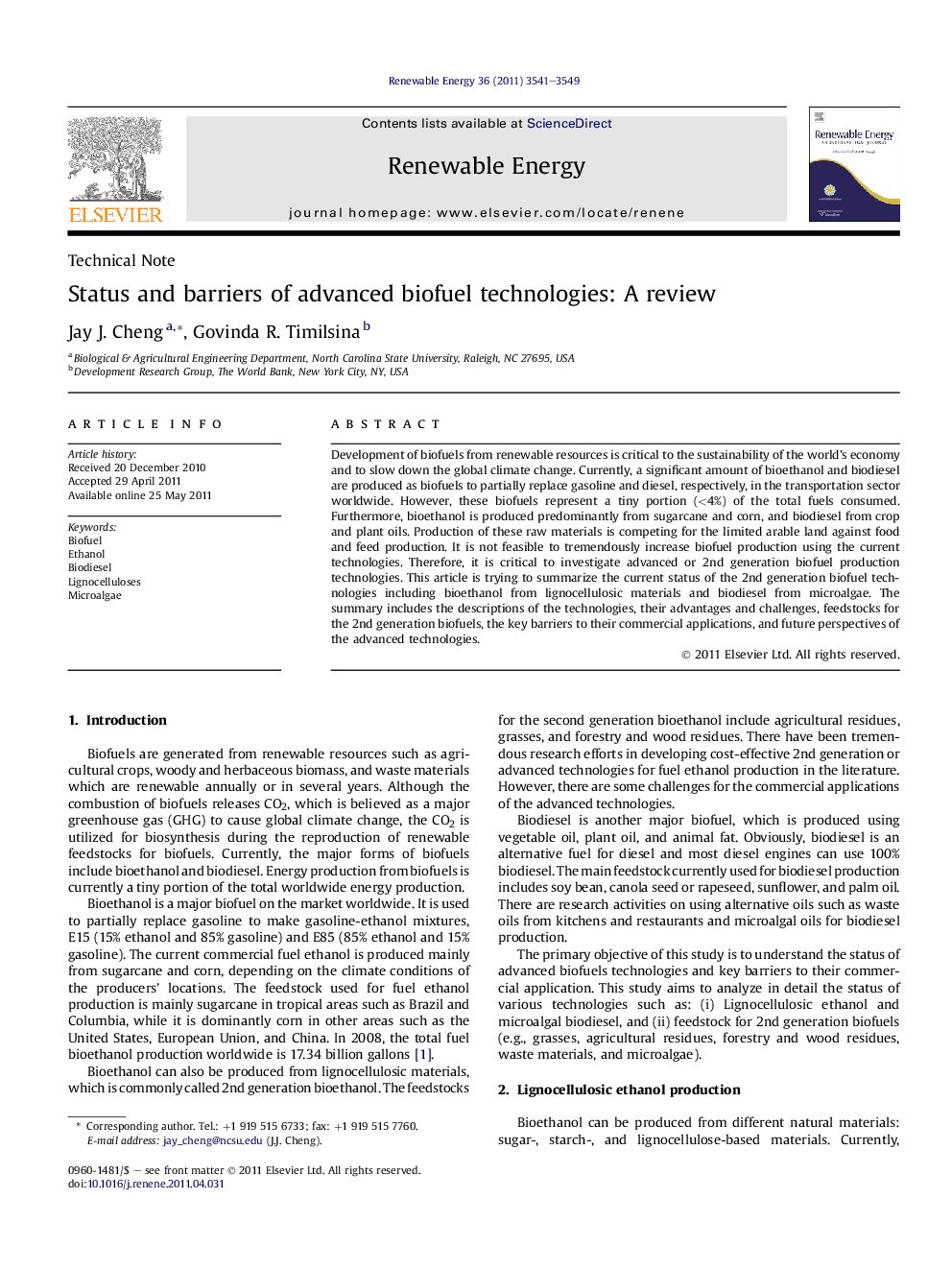| Article ID | Journal | Published Year | Pages | File Type |
|---|---|---|---|---|
| 301211 | Renewable Energy | 2011 | 9 Pages |
Development of biofuels from renewable resources is critical to the sustainability of the world’s economy and to slow down the global climate change. Currently, a significant amount of bioethanol and biodiesel are produced as biofuels to partially replace gasoline and diesel, respectively, in the transportation sector worldwide. However, these biofuels represent a tiny portion (<4%) of the total fuels consumed. Furthermore, bioethanol is produced predominantly from sugarcane and corn, and biodiesel from crop and plant oils. Production of these raw materials is competing for the limited arable land against food and feed production. It is not feasible to tremendously increase biofuel production using the current technologies. Therefore, it is critical to investigate advanced or 2nd generation biofuel production technologies. This article is trying to summarize the current status of the 2nd generation biofuel technologies including bioethanol from lignocellulosic materials and biodiesel from microalgae. The summary includes the descriptions of the technologies, their advantages and challenges, feedstocks for the 2nd generation biofuels, the key barriers to their commercial applications, and future perspectives of the advanced technologies.
► A summary of the current status of the 2nd generation biofuel technologies. ► Advantages and challenges of lignocellulosic ethanol and microalgal biodiesel. ► Key barriers to the commercial applications of the 2nd generation biofuel technologies. ► Future perspectives of the lignocellulosic ethanol and microalgal biodiesel.
